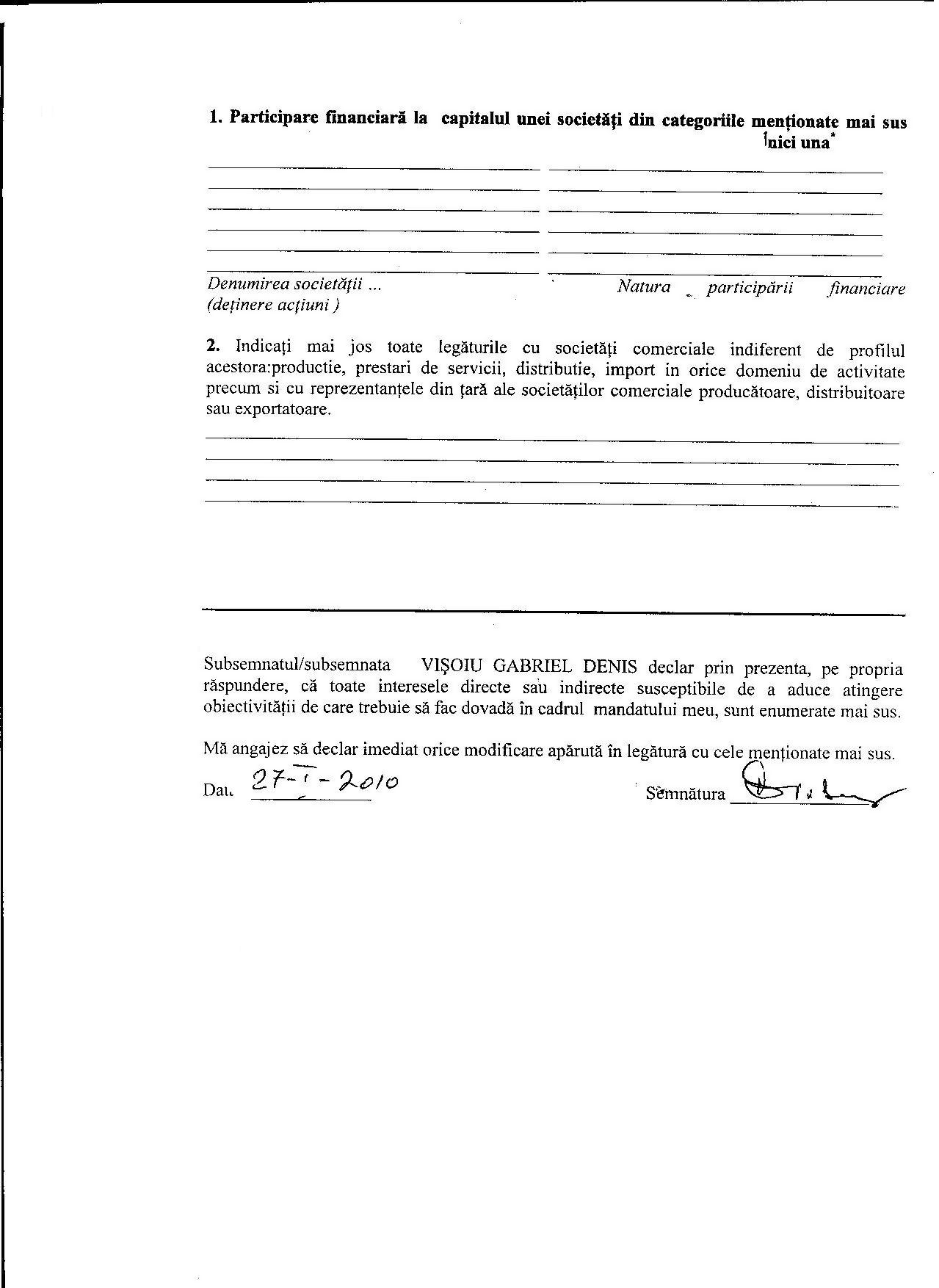EXTRACTS FROM THE SLANG ARCHIVE THE SLANG ARCHIVE AT
AUSTRALIA EXTRACTS A WIDE RANGE OF HYDROCARBONS FROM NATURALBD1607 APPENDIX 3 EXTRACTS FROM PHD THESIS SHIFTING THE
CHAPTER 32 TANNING OR DYEING EXTRACTS TANNINS AND THEIR
CLINICAL ENGINEERING (EXTRACTS FROM “WHAT’S A CLINICAL ENGINEER ?”
DECISION SUPPORT SYSTEM (DSS) FY 2012 EXTRACTS USER MANUAL
EXTRACTS FROM “THE CLEVELAND REPERTORY AND STOKESLEY ADVERTISER” AUGUST
SOME SAMPLE ENTRIES FROM THE LETTER ‘L’…
EXTRACTS FROM THE SLANG ARCHIVE
The Slang Archive at King’s contains printed glossaries and lexicons of general slang as well as a growing database of contemporary youth slang. Elsewhere on these pages you will also find links to historical sources held elsewhere. The following is a small selection of General Slang terms from the 16th century to the present day.
SOME SAMPLE ENTRIES FROM THE LETTER ‘L’…
Launch lunch
To vomit. A humorous euphemism heard in the USA since the early 1970s; a less emphatic synonym is lose (one’s) lunch. Among many synonyms in the repertoire of US high-school and college students, this phrase’s link to a ‘lunch launch’, a popular form of inauguration celebration, may be fortuitous (or may not).
Love-in-a-punt
Weak beer or watered down alcoholic drink. The expression dates from the late 1940s and 1950s and was ascribed by Paul Beale in his edition of Eric Partridge’s dictionary to a specific brew sold in the Portsmouth Area, so may be an item of naval slang or ‘Jackspeak’. The phrase is a pun playing on the romantic plant name ‘love-in-a-mist’ and on the assertion that the drink in question is ‘fucking near water’.
Love-bubbles, -bumps, -lumps
Female breasts. Love-bubbles was heard in the USA in the 1930s while the variant forms are probably more recent. The version love-lumps was popular among UK students in the later 1980s in keeping with the trend to coin childishly coy euphemisms as alternatives to established or taboo terms. Love-bumps may in the USA refer also to herpes sores.
Love-eel
A gel-based wrist support used in conjunction with a computer keyboard. The 21st-century expression plays on the consistency and erotic potential of the slippery accessory.
Love-gun
A the penis
B the hand when arranged –‘cocked’ like a make-believe pistol - for sexual penetration or stimulation with two fingers in the vagina, one in the anus.( A user’s definition is ‘two in the pink, one in the stink’.) When the arrangement is three fingers in the vagina, love-dog may be the preferred designation.
Love-handles
Folds of flesh at the midriff or back. The suggestion is that the areas in question can be gripped during lovemaking. The expression, which became popular from the 1980s, is, according to some users, often appreciative when applied to females, often pejorative when referring to males. Less affectionately such protuberances are also known as fat-packs; when they protrude between abbreviated tops and low-cut trousers the terms muffin-top (Australia, USA and elsewhere) or bacon-band (UK only) may be substituted.
Loved-up
Beatific, euphoric, intoxicated, particularly as a result of ingesting the drug ecstasy. An emblematic term in UK youth culture since the Rave movement of the mid-1980s. It may now also be used without reference to narcotics to mean gormlessly and/or tediously benevolent or, in student slang, simply amorous or enamoured.
Lug’oles
Ears. Luggs, often spelled thus, denoted ears in 18th century slang (they were then also known as wattles). The word is ancient, coming from a Scandinavian ancestor which meant a floppy protrusion such as a forelock or ear-flap of a cap by which someone could be pulled (hence also ‘lugged’). Lug’ole, like ear’ole, was an acceptably ‘rude’-sounding word in the 1950s when references to other orifices were taboo, and was popular in family slang and broadcast media. The ‘vulgar’ comedian Frankie Howerd employed ‘pin back your lug’oles’ as one of his catchphrases. The term has not disappeared but now sounds folksy and /or dated.
Lumb
Too much, an excess. In the 18th and early 19th centuries the word, in use among thieves and vagabonds, was recorded with this sense by Nathaniel Bailey and Francis Grose. Common sense suggests that there is some relation to lumber, meaning excess or unwanted articles, but this is unproven. In Old English lumb, now a family name, denoted a narrow stream valley and may possibly have been extended to give ‘flood’ or ‘overflow’.
Lumping pennyworth
A prodigious burden. In 18th century usage lumping began to denote heavy, big, and burdensome and according to Captain Grose the expression ‘he has got a lumping pennyworth’ was applied particularly to a man who had married a fat and/or oppressive wife. Pennyworth is an earlier and abiding colloquialism meaning a (small) portion.
Lumps of happiness and joy
A woman’s breasts. A nickname or comic euphemism, defined by a contributor to the Urban Dictionary website as ‘the female breasticles’. Mock-portentous or childishly endearing terms of this kind are a staple of 20th and 21st century banter and domestic slang.
Lumpy gravy
Signs of cellulite, typically on female thighs. This specific meaning has been recorded since 2000, but in US colloquial speech the phrase has been used for much longer to suggest botched perfection or a promised treat that fails to meet expectations (gravy having an almost iconic status in the South as a staple of good home cooking, hence also gravy-train). The expression was adopted, perhaps to convey the notion of an upsetting mix of classical and rock, as the title of Frank Zappa’s first solo album, released in 1968.
Lumpy-jumper
A female. The expression, popular since the 1990s, comes from UK army and RAF slang and refers to the visible effects of the tight pullovers issued to forces personnel of all genders. The jocular euphemism was recorded
Lunch at the Lazy Y
Engaging in oral sex, particularly cunnilingus. A humorous phrase playing on the shape of a reclining person with legs spread and a famous cattle brand from the American Wild West (where a ‘lazy’ letter in a brand was one imprinted horizontally). It may be possible literally to lunch at the Lazy Y, since there is a ranch of that name in Greenstone County, California.
Lunchbox
A the stomach, belly or abdomen. A jocular euphemism, used especially in the context of fighting, probably since the early 20th century. Boxers as well as manual workers might carry their midday meals in a box or ‘pail’.
B the male genitals, especially as visible through tight clothing. In this sense the term is an elaborated form of the earlier box, and was memorably applied by the Sun newspaper to the athlete Linford Christie in a number of headlines in the mid-1990s.
Luncheon-truncheon
The penis. The reduplication of sound and the probable reference to luncheon meat, a cheap tinned sausage-like food, links this comic euphemism to synonyms like beef bayonet, mutton dagger, pork sword, spam javelin and the rarer bacon torpedo (weapons in the armoury of what has been referred to as the salami army, or male gender). The version love-truncheon was popularised by the comedians Rik Mayall and Ade Edmondson in the stage performance of their TV show Bottom in the early 1990s. Luncheon incidentally is a folk alteration of nuncheon which itself derives from noon-schench, or midday-drink, (schench; ‘poured draft’ dating from an era of Old/Middle English where ‘standard’, dialect and slang were undifferentiated).
Lunchie
A crazy, eccentric, deviant. A back-formation in US slang from the expression ‘out to lunch’. It became a vogue term among some adolescents in the 1990s.
B inferior, unacceptable, unpleasant. These senses of the term were recorded among UK adolescents, who took up the expression, probably borrowed from northamerican usage, in the later 1990s.
Lundy
A traitor, collaborator. The term is Northern Irish (still heard since 2000, though less common since the Troubles subsided) and is inspired by Lieutenant Robert Lundy, governor of Londonderry in the 18th century. He was suspected by the protestant community of harbouring Catholic sympathies.
Lurched
Beaten, ‘trounced’, in a contest or game. Nathaniel Bailey recorded this usage as an item of thieves’ slang in 1749. Lurch here is thought to be unconnected with the standard term for an abrupt movement, but to come from the French lourche (itself probably taken from lurtz, an Old German word meaning lefthanded and clumsy). Lourche was adopted as the name of a game of dice in which it meant the point at which a player could no longer win. English-speaking players conversion of the sound also gave rise to the common expression ‘left in the lurch’.
THE ARCHIVES IN THEIR ENTIRETY ARE NOT FREELY DOWNLOADABLE: TO RECEIVE A SELECTION OF YOUTH SLANG, OR TO DONATE YOUR OWN EXAMPLES OF ANY SLANG VARIETY, PLEASE CONTACT [email protected]
© Tony Thorne/King’s College 2007
EXTRACTS FROM HTTPWWWELECUQEDUAU~3E211PRACSPRAC2PRAC2HTM DEPT OF COMPUTER SCIENCE AND ELECTRICAL
EXTRACTS FROM THE SLANG ARCHIVE THE SLANG ARCHIVE AT
INFORMATION ON LIMENITIS GLORIFICA IN JAPAN BASED ON EXTRACTS
Tags: archive the, slang, archive, extracts
- INSTRUCTIONS FOR COMPLETING A RESPONSE TO DIVORCE – APPLICATION
- WEST LOS ANGELES COLLEGE COURSE SLO ASSESSMENT TOOL NOTE
- WEST HARTFORD PUBLIC SCHOOLS GRADE AUTHORIZATION FOR THE
- KONKURS NA PROGRAM PROFILAKTYCZNY NA PODSTAWIE ART 48 UST
- E01 E12 E14 E15 E16 E17 E18 E20 A82
- CHECKLISTE BIOGASANLAGE DIESE CHECKLISTE SOLL DEN BETREIBERN VON LANDWIRTSCHAFTLICHEN
- ORDENANZA Nº 2 ORDENANZA REGULADORA DEL IMPUESTO SOBRE VEHÍCULOS
- BASİT MAKİNELER FIKRA BIR FIZIKÇI BIR KIMYACI VE BIR
- PHÓNG XẠ TỰ NHIÊN TRONG MỘT SỐ NGÀNH CÔNG
- PRESSMEDDELANDE 20091105 LANTMÄNNENS DELÅRSRAPPORT VISAR POSITIVT RESULTAT LANTMÄNNENS DELÅRSRESULTAT
- WEST OTTAWA ATHLETIC HALL OF FAME NOMINATION FORM NAME
- POWERPLUSWATERMARKOBJECT357922611 I2 INSTRUKCJA ZARZĄDZANIA SYSTEMAMI INFORMATYCZNYMI SŁUŻĄCYMI DO
- POWERPLUSWATERMARKOBJECT279188501 TECHNICAL SPECIFICATION ANNEXURE MRTS81A1 STAINLESS STEEL BRIDGE BEARINGS
- FORMACIÓN DEJOVENES 2012 1ª SEMESTRE FORMACIÓN PARA LA INTERVENCIÓN
- OPPGAVER TIL KURS I KONTRAKTSRETT II 1 KURSDAG ANALYSER
- CAPÍTULO 1 INTRODUCCIÓN 11 OBJETIVOS Y ALCANCE L
- SUPPORTING INFORMATION IMPAIRED CLEARANCE AND ENHANCED PULMONARY INFLAMMATORYFIBROTIC RESPONSE
- PLAN RADA POVJERENSTVA ZA UNAPRJEĐENJE I OSIGURANJE KVALITETE ZA
- A MAGYAR KÖZTÁRSASÁG BELÜGYMINISZTERÉNEK AZ OSZTRÁK KÖZTÁRSASÁG SZÖVETSÉGI BELÜGYMINISZTERÉNEK
- 6 METALŲ LAUŽO PIRKIMO PARDAVIMO SUTARTIS [NURODYTI SUTARTIES
- VYHODNOTENIE PRIPOMIENOK ODBORNÝCH KOMISIÍ MESTSKÉHO ZASTUPITEĽSTVA HLAVNÉHO MESTA SLOVENSKEJ
- ZAŁĄCZNIK NR 4 WZÓR WYKAZU ZAWIERAJĄCEGO INFORMACJE O ŚCIEKACH
- ТЕХНИЧЕСКОЕ ЗАДАНИЕ НА ПОСТАВКУ ТЕЛЕФОННОЙ АППАРАТУРЫ 1 НОМЕНКЛАТУРА ПОСТАВЛЯЕМЫХ
- BAHÇE PANOSU ILE ILGILI MUVAFAKAT İLÇESIMAHALLESI CADDESISOKAĞINO(ADAPAFTAPARSEL) ADRESINDEKI
- WESTSIDE INTERNAL MEDICINE LLC PRANAY R PATEL MD DEAR
- WESTBANK FIRST NATION WESTBANK LANDS REGISTER F ORM NO
- YURT DIŞINDA GERÇEKLEŞTIRILEN FUAR KATILIMLARININ DESTEKLENMESINE İLIŞKIN 20095 SAYILI
- KEMENTERIAN PENDIDIKAN DAN KEBUDAYAAN UNIVERSITAS PENDIDIKAN INDONESIA SEKOLAH PASCASARJANA
- RESOLUCIÓN RECLAMACIONES LISTA PROVISIONAL VOCALÍAS CONSEJO AUTONÓMICO PLURIPROVINCIAL DDÑA
- REGULAR TOWN MEETING TUESDAY JANUARY 29 2019 TOWN OF
 PROJEKT „ROZWÓJ SYSTEMU USŁUG OPIEKUŃCZYCH NA TERENIE MIASTA OSTRÓW
PROJEKT „ROZWÓJ SYSTEMU USŁUG OPIEKUŃCZYCH NA TERENIE MIASTA OSTRÓWRÚBRICA PARA EVALUAR RESUMEN CALIFICACIÓN 10 1614 PUNTOS
 20080512 INSTRUKTIONER OCH GENERELLA ANVISNINGAR FÖR HANTERING AV PRIVATA
20080512 INSTRUKTIONER OCH GENERELLA ANVISNINGAR FÖR HANTERING AV PRIVATAZKOUŠKA Z PŘEDPISŮ O PROVOZU NA POZEMNÍCH KOMUNIKACÍCH A
3 ONTARIO REGULATION 42905 MADE UNDER THE FISH AND
IZJAVA O KORIŠTENIM POTPORAMA MALE VRIJEDNOSTI POVEZANIH DRUŠTAVA SUKLADNO
 ANEXA 1 LA ORDINUL NR 6322006 UNITATEA SANITARĂ
ANEXA 1 LA ORDINUL NR 6322006 UNITATEA SANITARĂ  UNIDAD DE COORDINACIÓN DE NEGOCIACIONES INTERNACIONALES REPORTE DE LA
UNIDAD DE COORDINACIÓN DE NEGOCIACIONES INTERNACIONALES REPORTE DE LA Hospital de Clínicas de Porto Alegre Grupo de Ensino
Hospital de Clínicas de Porto Alegre Grupo de EnsinoPODPORA ZAMĚSTNÁVÁNÍ OSOB SE ZDRAVOTNÍM POSTIŽENÍM – INFORMACE PRO
 ANEXO I MODELO DE AUTORIZACIÓN PARA REQUERIR A LA
ANEXO I MODELO DE AUTORIZACIÓN PARA REQUERIR A LA ECOCEL INFORMATIENOTA DVEJDKG 12042010 NEGATIEVE VERWACHTINGEN MET BETREKKING TOT
ECOCEL INFORMATIENOTA DVEJDKG 12042010 NEGATIEVE VERWACHTINGEN MET BETREKKING TOTWYKONAWCA … NIP … ADR … DATA ……… ZAMAWIAJĄCY
NAME DATE PER CHANGE IN SUPPLY
FILE NO FORM 19 CHILD PROTECTION ACT 1999 (SS68
SEMESTER PROGRESS REPORT PROJECT TITLE CARIBBEAN RISK MANAGEMENT INITIATIVE
 DATE LETTER IS ISSUED VIA HAND DELIVERYEMAILLETTER MAILCOURIER SESSIONAL
DATE LETTER IS ISSUED VIA HAND DELIVERYEMAILLETTER MAILCOURIER SESSIONAL RESISTENCIAS VARIABLES (USO DEL CONVERTIDOR AD) EL MICROCONTROLADOR
RESISTENCIAS VARIABLES (USO DEL CONVERTIDOR AD) EL MICROCONTROLADOR NUTRITION AND DIETETIC DEPARTMENT PROFESSIONAL CONSENSUS STATEMENT GUIDANCE FOR
NUTRITION AND DIETETIC DEPARTMENT PROFESSIONAL CONSENSUS STATEMENT GUIDANCE FOR CONSEJO DE PARTICIPACIÓN INFANTIL Y ADOLESCENTE DE TOLEDO LA
CONSEJO DE PARTICIPACIÓN INFANTIL Y ADOLESCENTE DE TOLEDO LA